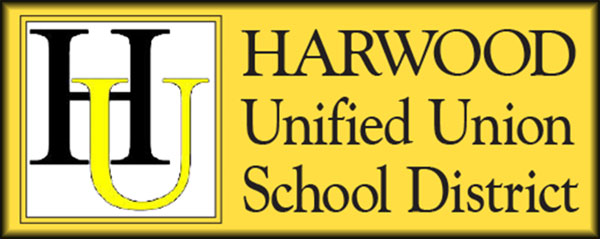Three Harwood Unified Union School District (HUUSD) eighth graders took home top prizes in Hildene’s 2023 Lincoln Essay competition. Harmony Belle Devoe, Harwood Union Middle School, won first prize for Region One, which included Grand Isle, Franklin, Orleans, Essex, Lamoille, Caledonia and Washington counties. Harwood Union Middle School student Emma Aither took home second place for Region One, while Crossett Brook Middle School student James Michelle Shenk received third prize for the region (top three winners are selected for each of the four regions).
The Lincoln Essay Competition for eighth graders in Vermont is administered by Hildene, the former home of Robert Lincoln (son of Abraham Lincoln and Mary Todd Lincoln) and his wife Mary, located in Manchester, Vermont. Hildene is now a museum and education center for school programs and camps.
Hildene’s website states, “For the past seventeen years, Hildene has administered the Lincoln Essay Competition informed by our mission: Values into Action. Using Abraham Lincoln’s legacy as touchstone, Hildene seeks to inspire young people to tackle important issues, underscoring the responsibility each of us has to help make our world a better place. The competition is open to all eighth graders in the state of Vermont, whether they enter as part of a class assignment or on their own. Essays are judged on the student’s understanding of the subject, as well as on their ability to convey that understanding through good writing.”
This year’s topic was censorship. The competition received 198 submissions from across Vermont and HUUSD students swept the top three spots for their region.
The 2023 competition’s prompt states, “Choose a book, in consultation with a parent or guardian, from the Shortlist of Challenged Books [provided] and read it, if you have not already. Imagine that there is a request to remove this book from your local public library, school library, or eighth-grade classroom and that you, as a student, have been asked to give your opinion about how the school or library should respond. First, identify at least one reason why someone might challenge this book. Second, state what action(s) you think the school or library should take in response to the challenge. Third, give two distinct, well-explained reasons why this is an appropriate response. Finally, describe what you think the potential long-term impacts of your recommendation would be if it were implemented.”
Hildene’s website says Region One’s first-place winner “Harmony [Devoe] advocated for keeping “Finding Junie Kim” by Ellen Oh on the library shelf because Vermont needs more books that raise awareness about racism and that help Asian-American students like her feel represented. ‘Books centering on diversity have a special place in my heart…,’ writes Devoe. ‘I’m seldom sure where I fit in, but books are a way to enter a whole new world of imagination, and I tend to choose books I feel culturally connected to. If books like “Finding Junie Kim” were taken out of my library, I’d feel even more marginalized.’”
Second-place winner Emma Aither “proposed that rather than banning “Ghost Boys” by Jewell Parker Rhodes, the town or library should host community conversations with guest speakers to increase awareness about racism and hate.”
Third-place winner James Michelle Shenk “wrote about the critical need to keep books like “Melissa” by Alex Gino accessible to all students to provide opportunity for transgender representation and discussion. ‘In a world that seems intent on erasing anyone who doesn’t fit its definition of perfect,’ they write, ‘“Melissa” is something different in children’s literature, showing that everything isn’t perfect, and that’s okay.’”
The winners received cash prizes and certificates commending their achievement.







